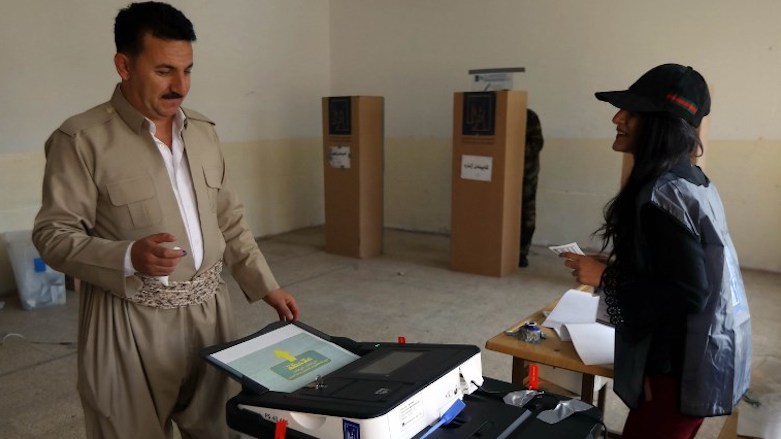US: Date for Kurdistan elections ‘is up to’ Kurdish leaders
The date for parliamentary elections in the Kurdistan Region is the decision of Kurdish leaders themselves, the US State Department told Kurdistan 24 on Monday.

WASHINGTON DC (Kurdistan 24) – The date for parliamentary elections in the Kurdistan Region is the decision of Kurdish leaders themselves, the US State Department told Kurdistan 24 on Monday.
Although the Kurdistan Region is abuzz with reports that the US has asked for a delay in the elections, that is not a true reflection of the US position, according to a statement provided by the State Department.
The “timing of elections in the IKR [Iraqi Kurdistan Region] is up to the leaders of the Kurdistan Region and its parliament,” a State Department official said, in response to a question from Kurdistan 24.
That decision should take “into account all of the circumstances in the Region and in Iraq,” he added.
The two major Kurdish parties have split sharply on the question of when to hold the elections, which are currently scheduled for September 30.
The Patriotic Union of Kurdistan (PUK) wants the vote delayed and has said that Brett McGurk, Special Presidential Envoy for the Global Coalition against the Islamic State (IS), has asked that the elections be postponed, until after an Iraqi government has been formed.
The Kurdistan Democratic Party (KDP), on the other hand, wants the elections to be held as scheduled.
McGurk visited the Kurdistan Region last week and met with several leading political figures, including Masoud Barzani, head of the KDP.
On Sunday, the PUK’s Awzad Tawfiq told Kurdistan 24 that McGurk had “urged us not to hold elections on September 30.” Marwan Galili head of the Islamic Group of Kurdistan (IGK) in the Kurdistan Parliament, told Xendan news outlet much the same, adding that the IGK does not favor postponing the vote.
Paul Davis, a former Pentagon analyst and now a Fellow at Soran University, suggested that the real issue was that the PUK feared it would do poorly in the elections.
Analysts say the PUK suffers two major problems. One is that its decision, or the decision of a PUK faction, to side with Iran, the Shiite militias, and Qassim Soleimani, head of the Quds Force of Iran’s Islamic Revolutionary Guard Corps (IRGC), in last October’s assault on Kirkuk is hugely unpopular.
The second of the PUK’s major problems is the divisions within the party that have emerged with the protracted illness of its long-time leader, Jalal Talabani, and then his death, shortly before the assault on Kirkuk.
Likening the reports of a US bid to postpone the Kurdish elections to the charges of Russian interference in America’s 2016 election, Davis told Kurdistan 24, “As far as I know the US cannot openly and legally interfere.”
Serwan Ismail, a KDP representative in the last Iraqi parliament, told Kurdistan 24 that he had heard reports that McGurk had asked for the elections to be postponed until after the formation of an Iraqi government, but described the request as “illogical.”
“There is no relationship between the two election processes,” he affirmed.
Informed that the US was not saying that the Kurds had to postpone their vote, Ismail responded that he was “very happy.”
“Let us not destroy” Kurdish democracy, he said, “which we have worked so hard to build, with the support of the US and the United Nations, in order to get to this stage.”